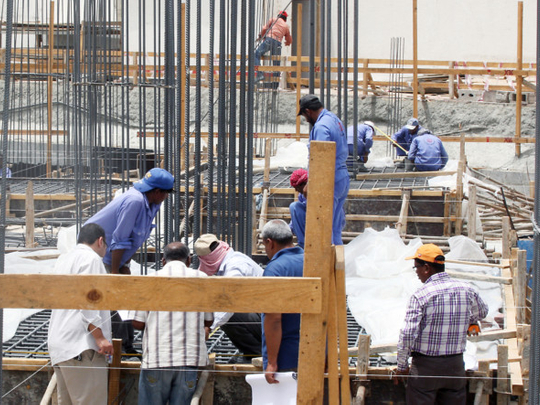
Dubai
Prices of key construction commodities such as steel and cement continue to hold despite the frequency of new project tenders coming to the market in recent weeks, industry sources confirm.
“A lot of the mega-projects that Dubai and Abu Dhabi will see by 2020 are still very much on the drawing boards — I don’t see any changes in the status quo in the local construction sector for another six months at least,” said Dr. J. R. Gangaramani, president and executive chairman of Al Fara’a Construction Group.
“That’s the time it would take for the first of the planned mega-projects to get through with the necessary approvals and reach a stage where activity starts on site.
“Of the projects that have been announced in the recent past, their combined utilisation of construction resources in the UAE would be around 50-60 per cent. There is still lot of room for the sector to grow.”
Commodity prices are also rated “stable”; “On the cement side, cement capacity (which is mostly sourced locally) remains balanced,” said Gangaramani. “The issue of cement shortage and price volatility was there only for a short period between 2006-08. There is now self-sufficiency on cement.”
Indeed, new cement factories and addition of new lines at some of the bigger ones in recent years have been cited as factors in price stability.
Market sources confirm that contractors have held the line on pricing — “There’s a lot of competition for the new tenders and it means that quoted prices are realistic and projects are going to them,” said an industry source. (Currently, cut-and-bent steel bars are averaging around Dh2,500-3,000 a tonne or even less. Cement is quoting around Dh250 a tonne and is easily available.)
The upturn in tendering activity has been happening only recently. According to a report by Phider Advisory, “Expansion in bank lending has steadily increased since the residential price trough in 2011 (5 per cent year-on-year as of July 2013), but that has not consistently filtered into construction, which has remained relatively unchanged in H1-2013.”
But in recent weeks, the landscape is changing and sum serious amounts are being mentioned. Arabtec Contracting has picked up a whopping $5.5 billion contract from Abu Dhabi headquartered Aabar to build a series of towers in Dubai and Abu Dhabi. Nakheel keeps awarding new contracting orders, including three for Dh41 million for work related to its Al Furjan and Warsan Village communities on Saturday.
“We feel that Dubai will continue to out perform most global cities and has a better value proposition for global investors,” said Juwaad Beg, CEO of Al Madina Al Raeda, a developer which has just launched a high-rise project in Downtown.
“Dubai is small in relative terms and with the limited space and the attractions and advantages it offers, we feel demand will outstrip supply and force up the capital appreciation of real estate assets. Certainly, we believe the outlook for the next 7-10 years is bright.”











